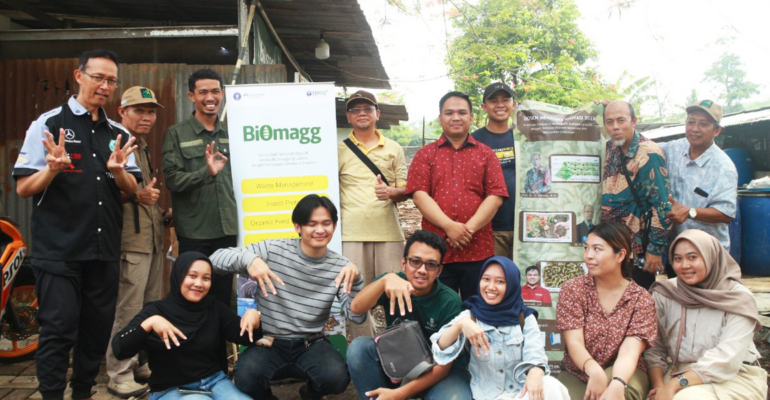IPB University Develops Maggot Business Model to Increase Income and Protect the Environment

IPB University through the Innovation Service Lecturer program, developed a business model for household-scale maggot cultivation in Pagelaran Village, Ciomas District, Bogor Regency. This activity was carried out on November 9–10, 2023 in Pagelaran Village and on November 11, 2023 at Biomagg Depok for a comparative study.
Prof Nahrowi, the initiator of the program, said that this activity aims to increase community income as well as provide a solution to improve the environment.
“Pagelaran Village was chosen because it is close to where I live, meaning I know exactly the problems that exist in the community around my area. I also know exactly what program they want to develop. This program is designed to increase the community’s income as well as provide a solution to improve the environment,” said Prof Nahrowi.
Meanwhile, Dr Muhammad Ridla, who is also the initiator of the program, added that the main goal is to help end poverty by increasing the daily income of the Pagelaran Village community, especially in Bukit Asri housing.
“We do this through a series of training and mentoring activities, as well as the implementation of a sustainable black soldier fly (BSF) larvae business model. In addition, the program also focuses on environmental conservation through waste bioconversion, which is an important step in preventing climate change. We believe that with this approach, we can create sustainable jobs and contribute to the well-being of the environment,” explains Dr Ridla.
Hadi, Marketing Manager of Biomagg, said that the potential for maggot cultivation is huge. He said that the amount of organic waste produced every day by households is 0.5 kilograms. This amount can produce 50 grams of maggot every day.
The potential for maggot cultivation is in line with the amount of waste produced. So far, organic waste has not found a solution and only accumulates in landfills. This maggot cultivation can be the right solution,” said Hadi.
Adli, one of the maggot farmers, said that he felt many benefits after cultivating maggots. “One of the benefits is to increase my income. In addition, maggot cultivation can also benefit the environment by breaking down organic waste,” said Adli.
Pagelaran Village Head Bogor, Yusuf, said that the high population in Pagelaran village means that the amount of organic waste generated is also high. “I hope that with the implementation of this program, in addition to being an additional income for the community, it can be a solution to the problem of household organic waste,” Yusuf said.
The Innovation Service Lecturer Program is expected to be a solution to the problem of organic waste and improve the welfare of the community. (JR) (IAAS/MZS)



